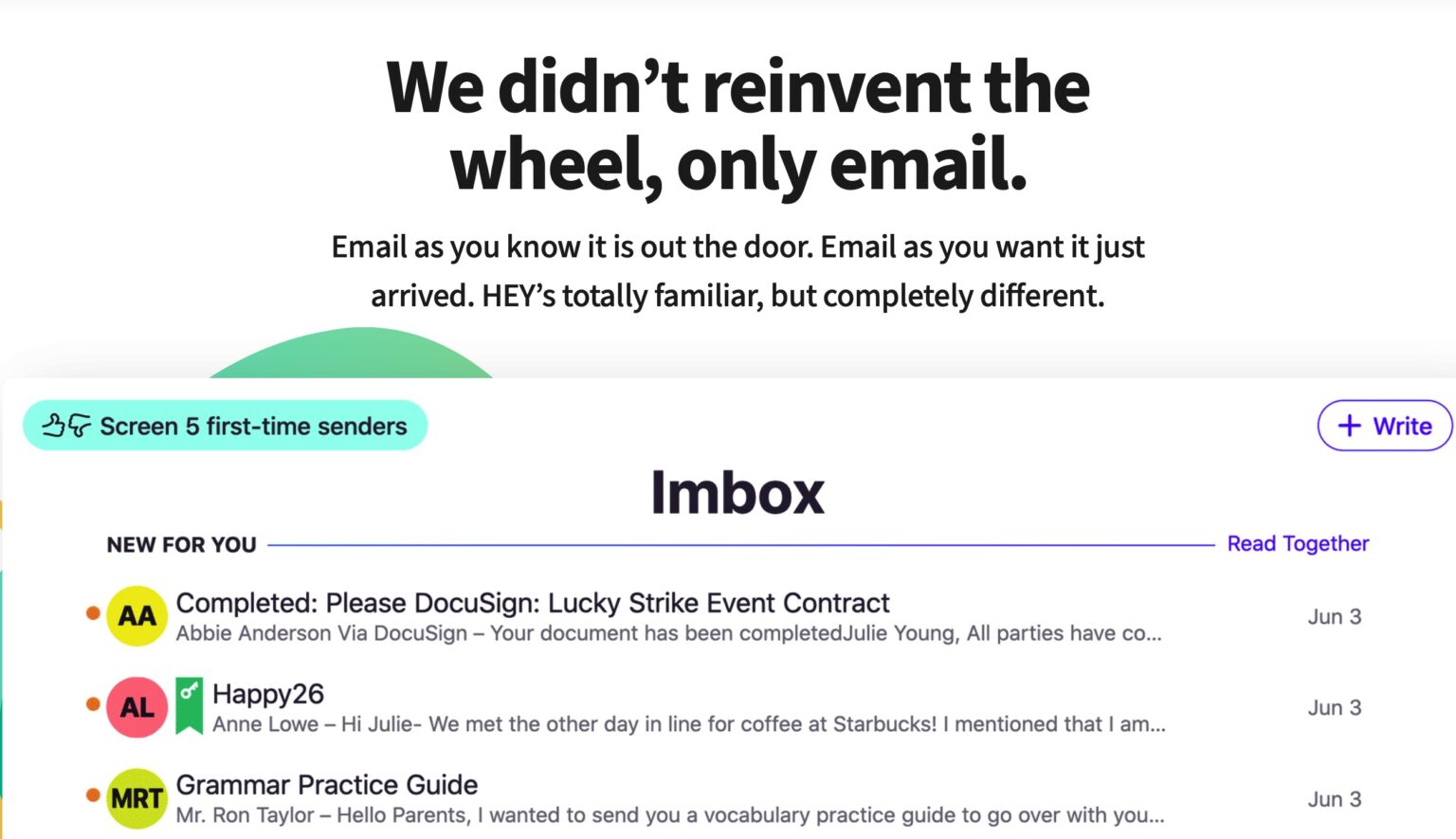One of the creators of newly launched email service Hey accuses Apple of behaving like gangsters by allegedly threatening to remove the app from the App Store if it did not start selling its premium subscription through Apple’s platform — thereby giving Apple a cut of the profits.
“Like any good mafioso, they paid us a visit by phone,” Basecamp CTO David Heinemeier Hansson wrote in a long Twitter thread. “…[W]ithout even as much of a curtesy euphemism, [Apple said] they’d burn down our store (remove our app!), lest we paid up.”
There is no chance in bloody hell that we’re going to pay Apple’s ransom. I will burn this house down myself, before I let gangsters like that spin it for spoils. This is profoundly, perversely abusive and unfair.
— DHH (@dhh) June 16, 2020
Apple’s in-app payment demands
A Protocol article provides some added context. Basecamp’s Hey app launched on Monday, after which its lead iOS developer was contacted. Apple told him that the 1.0.1 version of the app, which offered bug fixes, had been rejected. This is because it violated one of Apple’s developer guidelines, stating that in-app payments must be done via the App Store.
Hey charges users $99 per year for its smarter email service, which offers better workflows, email screening and more. Hey is available for a variety of platforms, including iOS. However, Apple believed that any premium features should be available for purchase through its own payment system. This would give Apple between 15-30% of Hey’s subscription cost.
Here’s the rejection letter. I love how they frame their shakedown as “offer customers the option”. Not a single mention of the fact that Apple will take 15-30% of our business through this. THIS IS ALL JUST FOR THE CONSUMER GOOD, YOU SEE. pic.twitter.com/rzQbsfCHvs
— DHH (@dhh) June 16, 2020
Basecamp tried to submit a new 1.0.2 update, which reportedly remained “under review” by Apple for longer than normal. They then received another call, saying that they must implement Apple’s payments system or the app could be removed. While other email apps like Spark and Edison allow customers to log into existing accounts without signing up via the App Store, Apple said it would not talk about other apps.
Apple then followed up with a letter, saying that existing customers could log in as usual. However, new subscriptions needed to be made available as in-app purchases. In David Heinemeier Hansson’s Twitter thread (which you can click through to read in full: it’s fairly long), he accuses Apple of acting like “gangsters” in their interactions.
This certainly does not get any better by the fact that we’re technically competing with Apple head-on now. Apple sells email services as part of their iCloud bundle. So not only are they running the only shop in iPhone town, they’re also selling their own competing service.
— DHH (@dhh) June 16, 2020
In a comment to Protocol, Apple said that it had made a mistake approving the app in the first place. The article notes that:
“Apple allows these kinds of client apps — where you can’t sign up, only sign in — for business services but not consumer products. That’s why Basecamp, which companies typically pay for, is allowed on the App Store when Hey, which users pay for, isn’t. Anyone who purchased Hey from elsewhere could access it on iOS as usual, the company said, but the app must have a way for users to sign up and pay through Apple’s infrastructure. That’s how Apple supports and pays for its work on the platform.”
Apple antitrust complaints
This is a complex issue. Last year, Apple hit back at a similar complaint from Spotify by saying that: “We provide the platform by which users download and update their app. We share critical software development tools to support Spotify’s app building. And we built a secure payment system — no small undertaking — which allows users to have faith in in-app transactions. Spotify is asking to keep all those benefits while also retaining 100 percent of the revenue.” In other words, Apple believes that it is providing a platform for distribution, and should not be cut out of financial interactions that also draw on the benefits of that platform.
Not everyone necessarily agrees with that position, though. Other companies have spoken out about Apple’s insistence on taking a cut of their revenue, which they claim is anti-competitive. On Tuesday, the European Union opened an official investigation into the App Store. No conclusion has yet been reached.


